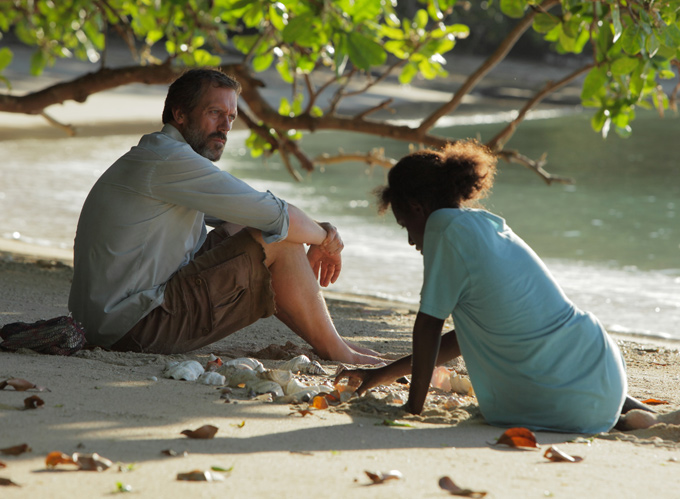 From Andrew Adamson, the director who brought us the first two "Shrek" and "Narnia" movies, "Mr. Pip" is a rather feeble attempt at more serious subject matter than talking lions and animated ogres. A literary adaptation of a coming-of-age story, with links to Charles Dickens’ classic "Great Expectations," the film leaves you with the wish that Adamson would stick to fantasy — at least in that world there’s some fun to be found.
From Andrew Adamson, the director who brought us the first two "Shrek" and "Narnia" movies, "Mr. Pip" is a rather feeble attempt at more serious subject matter than talking lions and animated ogres. A literary adaptation of a coming-of-age story, with links to Charles Dickens’ classic "Great Expectations," the film leaves you with the wish that Adamson would stick to fantasy — at least in that world there’s some fun to be found.
Based on the best-seller by New Zealander Lloyd Jones, the story of "Mr. Pip" takes place in Bougainville, a cinematically untouched island close to Papua, New Guinea. Considering themselves to be different than their more powerful neighbors, the locals of Bougainville rebell and fall under a blockade, essentially becoming prisoners in their own homes. Amidst all the natives, a lone white man wearing a red nose drags about a local lady on a cart. Why is he there? Who is he? Who is this woman? This is all a mystery that gets solved much later, when it’s far too late, and we’ve forgotten the questions. The story centers on Watts (Hugh Laurie), who becomes a teacher to the local children, and though he says he’s not a wise man, he does know "Great Expectations." He bonds with a girl called Matilda (Xzannjah Matsi) who becomes so enamored by the book, and the character of Pip, that her imagination runs wild and she envisions her own version of Pip, much to her mother’s dismay.
Revealing more would ruin whatever semblance of a plot there is here, if you can avoid the gargantuan holes on the way to the finish line. There is a lot wrong with "Mr. Pip," but perhaps most of all the issues relate to the characters. Wholly underdeveloped, they make decisions at random moments that are meant to portray bravery and conviction, but end up reeking of desperation for sympathy. Characters that are key to our understanding of pivotal scenes are brushed aside like they’re extras, only to be talked about later on as if to persuade us of their importance — it's all too little, too late.
Hugh Laurie drops the cane, the accent, and the arrogance we’ve grown to love on "House," and to his credit delivers a subdued performance that’s out of his comfort zone. The trouble is that the script isn’t there to help, but only to provide a blueprint of a mysterious man we’re still questioning after the credits roll. Matsi, a native of the island and in her first time on screen, shows guts and solid acting chops as Matilda, but again, without the help of the script. Her wild imagination only increases to annoy as her Pip (Eka Darville) starts getting more bizarrely involved in the narrative.
Though the story and lack of character development belong in the gutter, there are some redeeming qualities that reach for the stars. The lush nature of Bouganville is beautiful to behold, the local way of life a fascinating aspect for the culturally thirsty. The film also makes you appreciate "Great Expectations" (as opposed to the actual book its based on) because the literary word does have the power to change lives and help through struggle, and Dickens is without a doubt one of the greats. It’s a shame that much of the power and struggle in the film feel so contrived.
"Mr. Pip" is a movie that looks like it belongs on TV, and not because of its small-screen star. Adamson claims that this was a labor of love, but it leaves you with the feeling that it was made for those who’ve read the book, and in such a lackadaisical approach to storytelling that it's unlikely to attract new fans. Our advice is to stick with Mr. Dickens and skip "Mr. Pip." [D]

